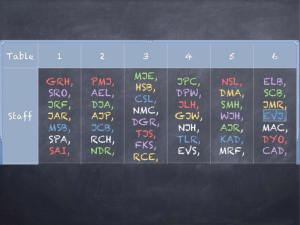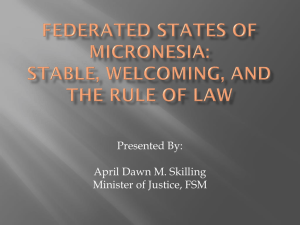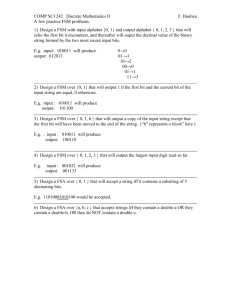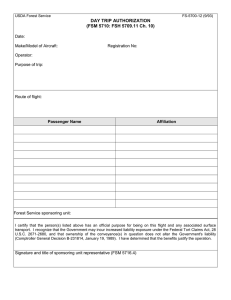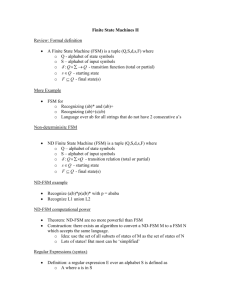Collaborative Decision Making
advertisement
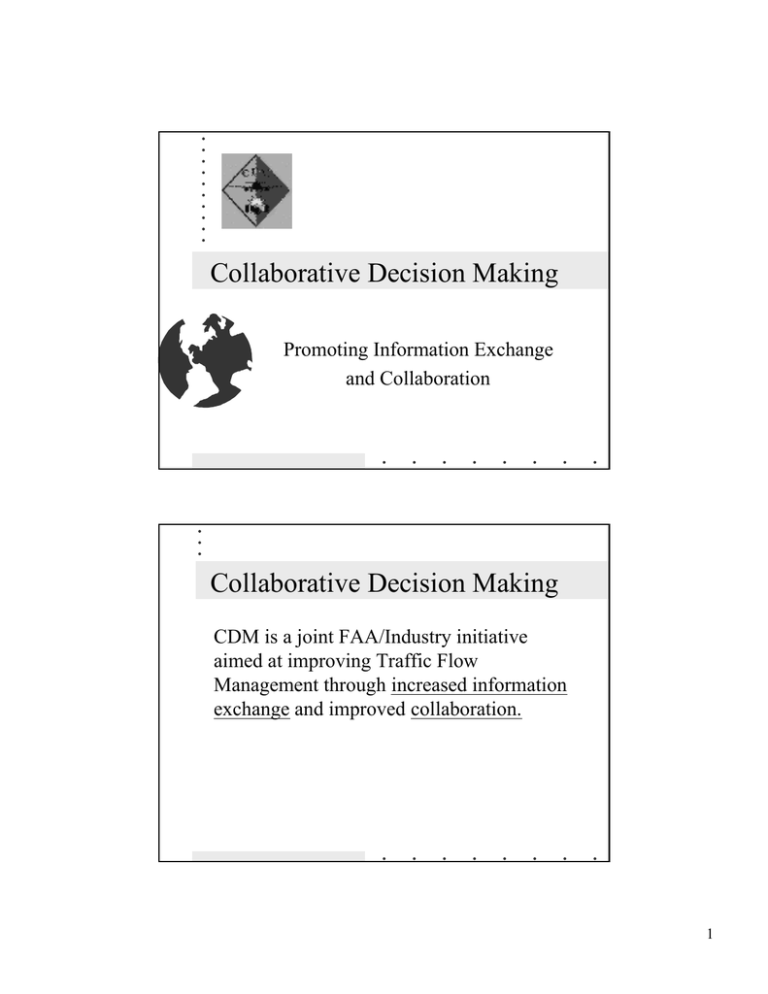
Collaborative Decision Making Promoting Information Exchange and Collaboration Collaborative Decision Making CDM is a joint FAA/Industry initiative aimed at improving Traffic Flow Management through increased information exchange and improved collaboration. 1 Collaborative Decision Making • Moves away from centralized control by the FAA and its agencies • Moves towards distributed traffic management CDM Initiatives • Ground Delay Programs Enhancements • Collaborative Routing 2 Ground Delay Programs • Controlled Time of Arrival (CTA) • Slots allocated per hour = hourly arrival capacity of the airport. • Controlled Time of Departure (CTD) CDM Building Blocks • “Common situational awareness” • Accurate and timely picture of demand • Processes and procedures that are flexible enough to permit efficient response to changing conditions • Decision support tools 3 Common Situational Awareness Flight Schedule Monitor (FSM) Graph Display of Airport Capacity vs. Demand www.metsci.com/faa/faa.html FSM Timeline Display of Flights Accurate and timely Picture of Demand • Technology infrastructure - CDMnet • Remove disincentives to providing schedule updates 4 CDMnet AWE (FSM) AAL (FSM) COA (FSM) ATCSCC DAL (FSM) NWA (FSM) CDMnet Schedule Updates Volpe ADLs SWA (FSM) Metron (FSM) TWA (FSM) NAS Data OAG Data USA (FSM) www.metsci.com/faa/faa.html GDP Procedures Discouraged Information Exchange and Collaboration • Grover-Jack Algorithm – Allocates slots based Estimated Time of Arrival (ETA) when GDP is issued. – Double Penalty discourages airlines from notifying FAA about airline delays. – Does not allocate slots to canceled flights. 5 Processes and Procedures • Ration By Schedule (RBS) • Compression • Revisions Ration By Schedule (RBS) • Assigns slots based on original scheduled (OAG) times rather than estimated time of arrival. • Eliminates double penalty • Allocates slots to canceled flights. 6 Compression • Compression is a inter-airline slot swapping process which moves flights up into open arrival slots so that valuable resources do not go unused. Revisions • Allows the traffic management specialists to change the number of slots allocated per hour when the airport acceptance rates change significantly due to unforeseen weather fluctuations during the ground delay program. 7 GDP Process ATCSCC/AOC Evaluation Demand Vs. Capacity Run GDP ( RBS Algorithm) Send Proposed GDP Advisory AOC Response (Substitutions & Cancellations) GDP Revision /Extension (RBS) Compression AOC Response (cancellations) Is GDP still required? Yes Exit loop when program expires or is cancelled. No End Compression Demo 8 Future Work • GDP Enhancements – – – – Simplified Subs CTA control only Incorporating Departures Integration of CDM with Existing and Developing Systems (CTAS, SMA) 9
